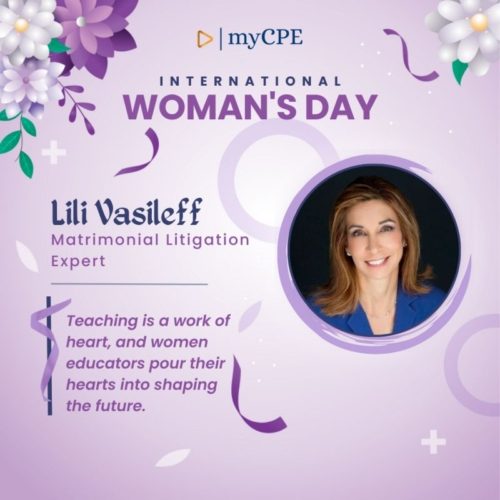
Lili Vasileff recognized by myCPE on International Women’s Day
Lili Vasileff recognized by myCPE on International Women’s Day

Lili Vasileff recognized by myCPE on International Women’s Day
Lili Vasileff recognized by myCPE on International Women’s Day

Wealth Protection Management on Meet the Elite Podcast
Wealth Protection Management on Meet the Elite Podcast

What is Divorce Financial Planning?
Lili is a divorce financial planner and co-founded the National Association of Divorce Financial Planners. Number one complaint from clients is that they felt rushed

Divorce by the decade seems like an odd way to call the shots to identify the risks for a marriage. For years, it seemed like the longer you were married or the longer you waited to get married, the better. Most people believe that the relationship between age at marriage and divorce risk was almost linear: the older you were, the lower the chances of divorce. Curiously, not only are these basic assumptions mistaken, but also the premise that all divorces face mostly the same financial issues. Granted there are three financial topics potentially relevant to every divorce: support, custody, and property division. The factors of each vary considerably by your age and should influence what’s most important to you.

Money woes after a divorce. Take these steps to get a plan in place
If you’re divorced, you don’t need to be told that your financial life has changed. However, one key indicator — how willing

Don’t let money woes silence you after a divorce
If you’re divorced, you don’t need to be told that your financial life has changed.

Getting divorced? How will you pay for kids’ college
Divorce throws a wrench in many long-term plans, from savings to retirement and beyond. If you’re divorcing and have children, even if they are young, you should also consider the impact the end of your marriage will have on their college plans.
Some states require divorcing couples to address how they will pay for their children\’s college education in their divorce papers. The clause does not require that one or both parents pay for college, but that they come to an agreement about what contributions they will make to higher education for their offspring.